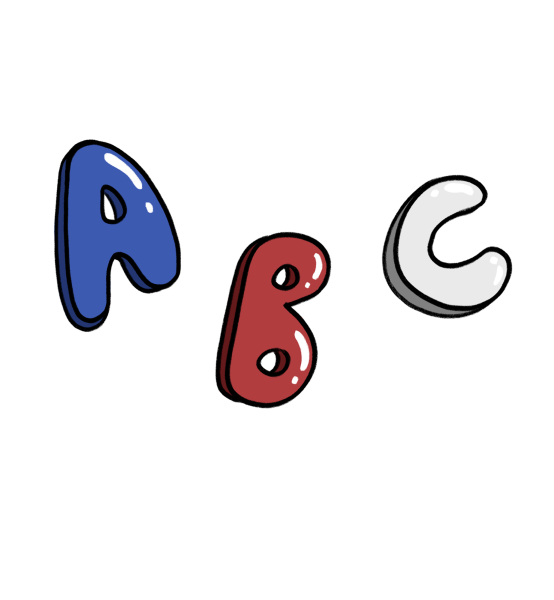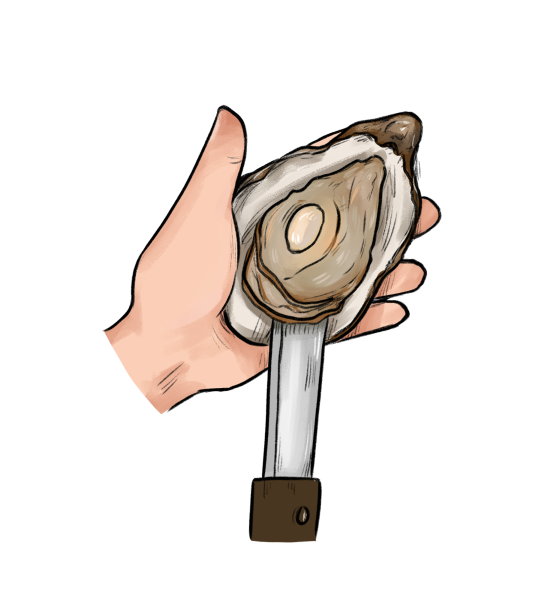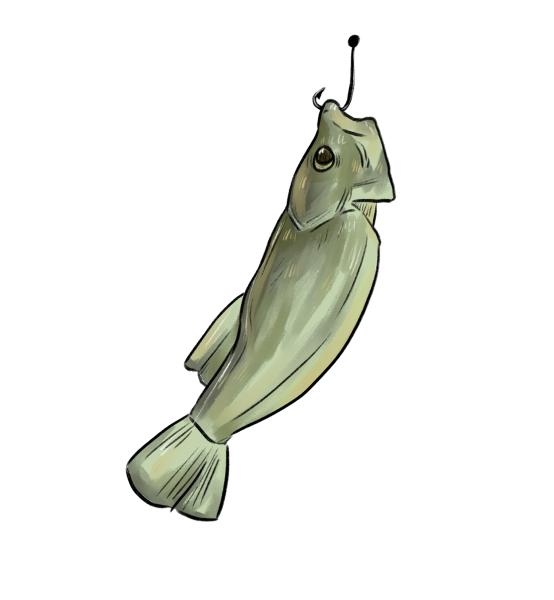Three things I learned when I became sentient: the alphabet lied to me, the world was, in fact, not my oyster, and the American Dream was the white man’s paramour.
I called the English language “American” growing up.
Kindergarten class was filled with the voices of monotone children repeating after a blonde woman’s insistence on the alphabet. Repeat after me! No, like this—again. Repeat after me! There we go! What about this one?
I don’t remember if I was the only one bewildered by her intensity. The alphabet. Alphabet—it sounded weird, foreign on my tongue. A, B, C. How stupid. Some letters didn’t even sound like what they were supposed to, depending on the word. Phonetics was a joke. Maybe I was being hypocritical—all languages are inconsistent from time to time—but it felt like the alphabet was purposefully doing it. It was taunting me, I knew it was. The alphabet lied to me with every letter. Why couldn’t I just use Korean?
This is America, the teacher reminded me. You were born here. You’re American. In America, we need to speak American. If you speak American, you can be more than—whatever this is. You can be American, and if you are American, you can finally do your best to succeed!
The formula taught to me: American + hard work = Success! That’s the American Dream, baby.
And the American Dream started with the alphabet. A, B, C …

I struggled to learn the alphabet. Struggled to learn it, not memorize it—I memorized it just fine, but accepting it was another battle. Was the act of accepting it something like defeat, giving into a language of vipers? I didn’t know. But I didn’t like it.
The biggest dilemma hit me very early on in my education: I wanted to use the bathroom.
I thought really hard about what the word was in English before saying it. Bathroom. B-A-T-H-R-O-O-M, “th” which makes an “s” sound that’s closer to “ㄷ.” The “th” didn’t actually sound like a “t” and an “h”—the letters that lie. Easy enough. You got this.
I was careful to make the “th” sound really strong, just like how the teacher said, like how Mom and Dad told me to say.
“You want to use the bathroom?” There goes the teacher smiling at me like I’d just stopped the third World War, saying:
Of course! See? One step closer to achieving the true American Dream: you’re speaking my language now, the language of lies. Welcome to America. Here, take my hand.
There he was—that thing, the American Dream.
He offered a handshake to me with a proud smile but I didn’t know what that meant: I bowed instead. And despite not touching my hand once, he wiped his hands off on his plaid shirt and turned away.
Another lie: Speaking American did not make me American.
The more I learned American—English, it’s just English—the more I became less of an American. Or maybe it was that the more American I became, the more I wished I couldn’t speak American. Or maybe it was that being American was survival, but becoming American was learning American, and learning American was understanding that I would never be an American—because being American was inherently lying all the time.
But speaking American = being American = lying = success = the American Dream. And everyone thought that this American Dream was the end-all-be-all for anyone standing on American soil.
Thus, everyone around me was dead set on being the best at speaking American. My parents wanted me to speak it, too. It would help me be American. It would help me learn to lie like breathing and join hands with the others, chasing this elusive American Dream together.
That was hard for me. Learning the alphabet was hard, being American was hard, because the American Dream was like some random white guy that everyone wanted to suck off. Nothing remarkable. Attractive only in theory, bland in reality. I had no real wish to chase it, but everyone said I should, so I did.
The supposed culmination of the spirit of America was expressed by this dream: the ability for anyone to do whatever they wanted as long as they worked for it. It was, however, a lie stacked on top of a lie, created from a language of lies, letters that lie.
You can be anything you want! A lie. The American Dream was dangling the prospect of success and glory like a carrot in front of you before snatching it back, chuckling, “Haha, too slow, bud!”
A, B, C. The C can sound like “see” but also like the beginning of “kick.” K can be like “kick” but also nothing like “know.”
Speaking American = being American = lying = success = the American Dream. Side note: the American Dream is not achievable, and he doesn’t like you.
I wanted to use the bathroom. B-A-T-H-R-O-O-M. The “t” in “th” lies every time.
2.
I never really “got” sayings. I knew what “it’s raining cats and dogs” meant—there weren’t actual fur-covered, domesticated mammalian creatures tumbling down from the heavens—but other things sometimes just didn’t make any sense.
Like, what did “the world is your oyster” even mean? Oyster—my world is an oyster? Why would it be an oyster, when it could be so many other things? Why is it confined to something that’s plucked from its home, cleaned oh-so-tenderly, tossed into a bin, shucked open with a sharp, nasty thing, and scraped away until nothing remains?
The world is your oyster—you can be whatever you want, whoever you want. That’s America, baby! Achieve anything. Do anything. Prerequisites: Speak American, be American, believe American. Shuck oysters.
How nice. Except, I would constantly get caught up with the schematics of it. Oyster? Something clamped shut, desperate to keep itself together in one piece? That thing? O-Y-S-T-E-R—live in the sea. Did you know “sea” sounds like “c” sounds like “see?”
Look around. See the world. The world is your oyster. You’re gonna be plucked from your home and shucked right on open.
I asked a lot of questions growing up, especially on sayings. The world is your oyster. He kicked the bucket. Why use this word, why that? Why can’t I do that? Why can’t I do this? Why is it an oyster, and not something else? Why is my world specifically an oyster? Why can’t it be like yours, maybe? Why can’t my world be like yours?
The world is your oyster. The world is the clerk who drops his smile when he sees my mom step up, the man who suppresses a laugh when my dad speaks with an accent. The world is the woman who pinches my cheek on the side of the road, greasy fucking hands leaving a red indent, smiling wide and pretty while expecting me to end up working at some low-paying, domestic job like all you exotic little things tend to do. The world is our great country, where people need to be liars and believe liars to be American, but will still be treated like anything but.
Go back to where you came from. Work hard and you’ll be rewarded. We don’t care about people like you. You’re parasitic; you’re the reason why our nation is like this. Work hard, work harder. Work, work, work, but don’t say anything about it. Patience is a virtue, or whatever that means. As long as you clamp shut and stay silent under the salty, murky sea, wait until we can snatch you right up and flay you open, you can do anything. The world is your oyster!

Sometimes, we’ll pluck up one of you—the biggest of the bunch, the one that looks like it’s filled with pearls—and drop you into a separate tank. Pump you full of promises, wait until you’ve grown, gouge out your soul. A showcase: look at this, everyone, isn’t this beautiful? We raised this right in our own waters! See? Anyone can be like this; pearlescent beauty, split in half. You can shine just as bright as this one. You can be just as successful—the model minority, raised in American waters. Leave everyone behind and do our bidding, and we’ll show you off and make you into a nice necklace for another to flaunt.
The American Dream: be like an oyster. Come here, give us everything, be treated like something, die with nothing. Maybe you have a pearl inside you that we can take and sell, leaving you with a hole in your side.
Funniest thing about all of this? I like oysters. They taste great.
Shuck me.
The world is definitely not mine, though. It belongs to the fucker who thought “shucking” was a cool word to describe the act of prying a living thing wide open to take from it.
See, if we put it plainly, it’s always upper-middle class white men who are already married who insist not only that the American Dream is real, but that he’s living it.
They talk about achieving it like hooking up with a stripper at a bachelor’s party. They talk about it wistfully like a first love never forgotten. They spread the word like it’s a religion and watch silently amused as the others try to desperately swipe at it.
They’re having an affair with it, or something like that. It’s ridiculous. But every time they bring it up, I buy it. Yeah, so true! I bet I can pay off all of my and my parents’ debts if I really put my sights on it. So true: if I cut down on my expenses that go into drinking a cup of coffee, I’ll start making as much as y’all do and be happy and fulfilled and—
The American Dream was a concept introduced to me like a fish might be introduced to a worm on a hook. Enticing, squirming, wiggling, alive, whispering, “Come on, then. You got this. You can do anything,” while failing to hide the sharp gleam of pointed metal jutting out from beneath. No matter. I bit anyway. Then a sharp pain, a clarity of realizing that the worm was never real, never meant for me—maybe for the fisher but not for the fish—and the feeling of being tugged up, choking on my own spit, useless in the air, being inspected.

Yeah, no, this one’s not gonna do it.
They’d snap a picture of their catch—the glory of the trap—then I’d drop back down into my safe waters, blink. Rub my bleeding cheek and peer up dazed and confused. Hook, line, sinker, the folks would say. They’d stare down at me with a look of both condescension and pity from above the surface, blond hair and blue eyes twinkling under the Western sun. They’d dangle a pretty thing over me, neon-pink and -yellow, limp and cold and dead.
Hook, line, and sinker indeed. Boy did I know what the hell they were talking about.
The American Dream—for me, it’ll always be just that, a dream. Unachievable, beautiful, regal. Pandora’s pithos, the spirit of hope left unopened, left to make us forever bet on something that will never be. The worm on the hook.
I know it’s fake. Yet I still leap at it desperately. It’s all that’s been offered to me—what would I be if I didn’t at least try to take it?